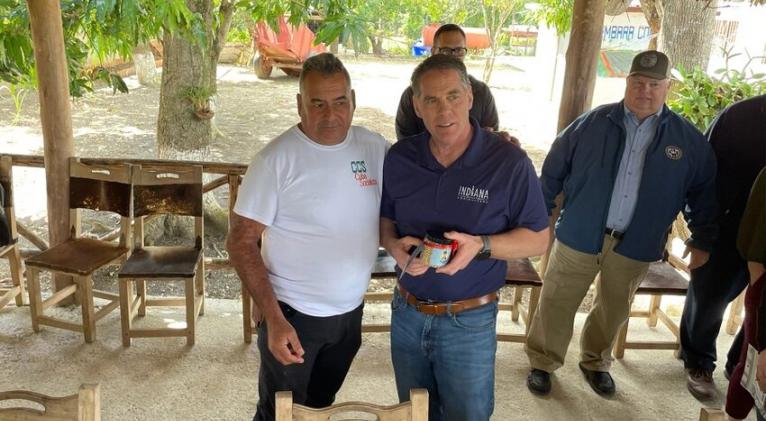Trade with Cuba hinges on relationships

Building positive relationships with Cuba has remained a priority for numerous industries, and agricultural leaders are working to see what potential there is for trading ag products with the country. Don Lamb, director of the Indiana State Department of Agriculture, recently visited with producers and key partners in Cuba during a trip with other ag leaders from across the U.S.
“The fact that we were there at all was a pretty big deal in Cuba,” Lamb says. “And that made you realize how real the situation is and how big their desire is for us to be able to trade with them.”
While no solid solutions were established, the primary focus of this trip was to cultivate relationships to make trade easier down the road. Lamb was hopeful after seeing the changes Cuba is willing to undergo to make trade possible.
“The big takeaway was they have been willing to make some changes,” Lamb explains. “I was impressed by the small steps that they’ve taken, and that kind of gives you some optimism for the future.”
Steps Cuba has taken
The main change, according to Lamb, happened in 2021 when Cuba revised its constitution to allow private-sector involvement in trade. Prior to that, Lamb says, building these relationships with private producers or cooperatives would not have happened.
“For a socialist country, that’s a really big step to work toward a mixed economy of state-run and private sector,” Lamb explains. “It’s kind of like they’re injecting some capitalism into a socialist system. If they’re willing to do that, it gives you hope for what might happen in the future.”
That increased private-sector engagement is what prompted the U.S. ag leaders to take this trip, according to Lamb. With the private sector more engaged in the value chain, opportunities for trade with those producers could be made easier.
Next steps for Indiana
At the conclusion of the trip, Lamb says they made connections with private-sector producers who need inputs such as fertilizer, seed and livestock feed. Lamb says the next step is to find a way to connect Indiana products and Cuban producers to fill those needs.
“That may take a little bit of time just to figure out how that will work, but right now it’s like any other business transaction,” Lamb says. “We’re trying to open the door and see what we can do, and start with one step.”
Lamb explains that all parties understand the desire is there for trade with Cuba. Now is the time for advocating in the U.S. while Cuba works on building capital.
“The biggest challenge still is the fact that there’s a lack of capital,” Lamb says. “Whether it’s at the government level or at the private level, they have a hard time coming up with capital.”
If producers and cooperatives in Cuba are going to get credit for purchasing ag products, they will need to seek that assistance from another country, Lamb says. He explains that those countries typically end up being Canada or Spain. Otherwise, they will need to have cash lined up to purchase those products.
For now, Lamb is grateful for building relationships with folks they would like to work with eventually.
“There are good producers there who can produce good products if they have the right inputs,” Lamb adds. “Why would we not want to be partnering with them to help make that happen?”














Add new comment